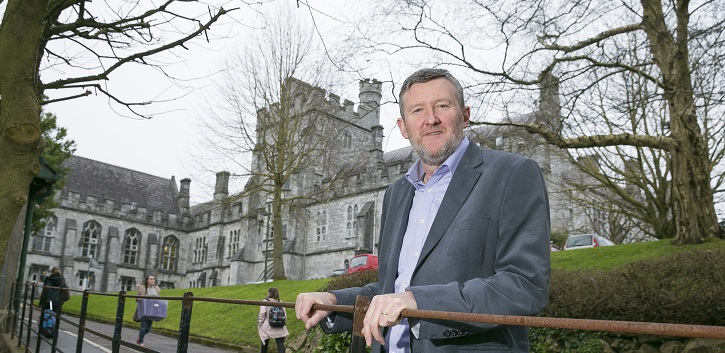Irish economic development since 1970

Serial under-achievement best describes Ireland’s progress in terms of economic development since 1970 argues Dr Eoin O’Leary, School of Economics, UCC in a newly published book.
Ireland’s performance for 4 of the last 5 decades has been mediocre at best, with the Celtic Tiger period being the exception. According to the author, “the Irish policy mind-set can be likened to a split personality. Outwardly, ‘Ireland Inc’ has been successful in attracting foreign businesses and lobbying governments. However, inwardly, its pre-disposition to lobbying has resulted in recurring self-inflicted crises."
Since the 1990s, Ireland has become synonymous with large foreign multi-nationals in the pharmaceutical, ICT and financial services sectors that have been hugely successful in using the country as an export-base. The majority of these businesses have been engaged in productive activity in the country, due in part to the flair and commitment of their management and workforce. Without the continued buoyancy of their exports, Ireland would not now be forecasted to be the fastest growing economy in the EU in the coming year.
These high-technology businesses, which account for only about 8% of total national employment, have operated since the 1980s in an enclave. With the exception of indigenous software sector (which employed a further 0.7%), Ireland has not been able over many decades to use the presence of these businesses to build critical masses of internationally competitive indigenous businesses in similar or related sectors.
It is well known that part of Ireland’s attraction to multinationals has been its long-standing favourable taxation regime. This has had the effect, for example of distorting Ireland’s levels of productivity, exports and R&D spending. Our government were clearly successful since the 1980s in lobbying for EU agreement on our attractive taxation policies. Yet this has increasingly been seen as detrimental to the tax bases of other countries. In future, tax competition from other countries will represent a serious threat to Ireland’s continuing attractiveness.
Since Ireland joined the EU in 1973, the government has put great stock in its ability to lobby in relation to the Common Agricultural Policy. However, by detaching rural communities from the discipline of the market, this policy has undermined the entrepreneurial vibrancy of the sector and the related food processing sector. The result is an over-reliance on commodity production at the expense of innovation. Tourism, which is also a successful exporting sector, has also under-performed due to a lack of institutional focus on business development over many decades.
When it comes to sectors that are not traded internationally, the government’s tendency to favour lobbying over policies supporting productivity has had hugely detrimental effects. There is compelling evidence of an unhealthy relationship between property developers and Fianna Fail, which, combined with light-touch financial regulation, contributed to the collapse of the property bubble after 2008 and the subsequent arrival of the Troika. However, a source of rising housing demand during the 2000’s was escalating wages, fed by the public sector benchmarking debacle. This was due to the government acquiescing to calls for ‘payback-time’ by trades unions. Further, from the early 2000s the escalating (non-pay) costs of doing business undermined Irish competitiveness, partly due to the failure by government to deal with anti-competitive practices in Ireland’s sheltered sectors.
Yet the tendency to pursue re-distribution at the expense of growth also existed before the Celtic Tiger, where trades union militancy and inappropriately expansionary fiscal policy brought the country very close to a bail-out in the mid-1980s. Indeed, Ireland’s economic stagnation during the 1950s, due to its misguided pursuit of protectionism since independence, was also associated with anti-competitive policies that facilitated cartels of businesses and unionization of the work-force.
For Ireland to be a high-performing EU–State in the next number of decades would necessitate fundamental changes to these deep-seated policy mind-sets. There are opportunities through the EU’s smart specialization agenda to move in the right direction. This would focus on entrepreneur led bottom-up development with policy being more evidence-based and resistant to the power of lobbies. However, it is far from clear that our policymaking is capable of rising to this worthwhile challenge.
The book is published by Routledge – see http://www.tandf.net/books/details/9780415645126/. It is being launched by Senator Sean Barrett on March 6 from 5.30 to 7 pm in the Aula Maxima UCC.
